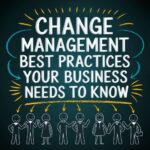Introduction: The Evolving Landscape of Financial Workshops
Financial workshops have become integral to professional development in the investment sector. With financial markets continually evolving, staying informed is crucial. Workshops provide a platform for financial professionals to enhance their knowledge, adapt to new trends, and refine their skills. These educational sessions are designed to address the latest market developments, regulatory changes, and investment strategies, ensuring that professionals remain competitive and effective in their roles. For those interested in enhancing their investment knowledge and skills, you can find additional details here.
Key Components of Effective Investment Workshops
Successful investment workshops are built on several core components. Firstly, expert speakers are essential. These individuals bring specialized knowledge and real-world experience, offering valuable insights that are both practical and applicable. Secondly, a balanced curriculum is crucial. This involves integrating theoretical concepts with hands-on applications, such as case studies and interactive simulations. Effective workshops often include breakout sessions where participants can work on real-world problems, fostering a deeper understanding of the material.
Case studies of successful workshops often highlight these elements. For instance, workshops hosted by institutions like the CFA Institute or the CFA Society often feature leading industry experts and incorporate a mix of lectures, discussions, and interactive exercises, demonstrating a well-rounded approach to financial education.
Tailoring Workshops to Financial Professionals’ Needs
Tailoring content to the specific needs of financial professionals is vital for maximizing workshop effectiveness. Different roles within the financial sector—such as financial advisors, portfolio managers, or analysts—require distinct types of information and skills. A successful workshop will address these differences by offering customized tracks for various roles. For example, a workshop for portfolio managers might focus on advanced asset allocation strategies, while one for financial advisors might emphasize client communication and portfolio management.
Understanding the expertise levels of participants is also important. Workshops should offer advanced topics for seasoned professionals while providing foundational knowledge for newcomers. This tailored approach ensures that all participants derive value from the session, regardless of their experience level.
Innovative Teaching Methods and Tools
The incorporation of technology and digital tools into workshops has revolutionized the learning experience. Virtual reality (VR) and simulations allow participants to engage with complex financial scenarios in a controlled environment, providing practical experience without real-world risks. Additionally, the use of gamification—where learning activities are structured like games—can enhance engagement and retention. Tools such as real-time data feeds and interactive dashboards also help participants practice with current market information, making the learning process more dynamic and relevant.
Measuring the Impact and Success of Workshops
Evaluating the effectiveness of a workshop is crucial for continuous improvement. Key metrics include participant feedback, knowledge retention, and the practical application of learned skills. Collecting feedback through surveys and assessments provides insight into what worked well and areas for improvement. Success stories and measurable outcomes, such as improved performance metrics or successful implementation of strategies, offer evidence of a workshop’s impact. For instance, a workshop that leads to participants achieving better investment returns or improved client satisfaction demonstrates its effectiveness.
The Role of Networking and Collaboration
Networking opportunities are a significant benefit of attending investment workshops. These events bring together professionals from various sectors, fostering an environment for collaborative learning. Activities such as roundtable discussions and group exercises facilitate networking and encourage the exchange of ideas and best practices. Building professional relationships through these interactions can lead to future collaborations, mentorship opportunities, and shared insights that extend beyond the workshop itself.
Trends and Future Directions in Investment Workshops
The landscape of investment workshops is continuously evolving. Emerging trends include the integration of advanced data analytics and machine learning techniques into workshop content, reflecting their growing importance in investment decision-making. Additionally, the rise of remote learning platforms has made it possible for professionals to participate in workshops from anywhere in the world, increasing accessibility and flexibility.
Future directions may also involve a greater emphasis on sustainable investing and ESG (Environmental, Social, and Governance) criteria, as these topics become increasingly relevant to investors. Workshops that incorporate these themes will be better positioned to address the changing priorities of the investment community.
Case Studies of Leading Workshop Providers
Leading workshop providers often set the benchmark for quality and effectiveness. For example, the CFA Institute is renowned for its rigorous workshops that cover a wide range of investment topics. Their workshops are known for their comprehensive content and expert instructors. Similarly, organizations like the Investment Management Consultants Association (IMCA) offer specialized workshops that focus on specific areas such as client relationship management and advanced portfolio management.
These case studies illustrate how leading providers implement best practices and innovative approaches to deliver high-value educational experiences. Analyzing their methodologies can offer valuable insights for organizing effective workshops.
Practical Tips for Attending and Organizing Workshops
For participants, maximizing workshop value involves active engagement and preparation. Reviewing the agenda and background materials beforehand, participating actively in discussions, and applying the knowledge gained to real-world scenarios can enhance learning outcomes. For organizers, clear objectives and well-structured content are key to delivering a successful workshop. Ensuring that logistical aspects, such as venue arrangements and technology support, are well managed contributes to a smooth and productive experience.
Conclusion: Enhancing Professional Growth Through Investment Workshops
Investment workshops play a crucial role in the professional development of financial experts. They provide opportunities to stay informed, acquire new skills, and connect with peers. By focusing on effective teaching methods, tailoring content to specific needs, and incorporating innovative tools, workshops can significantly enhance the expertise and effectiveness of financial professionals. Embracing these educational opportunities is essential for continuous growth and success in the ever-evolving world of finance.


